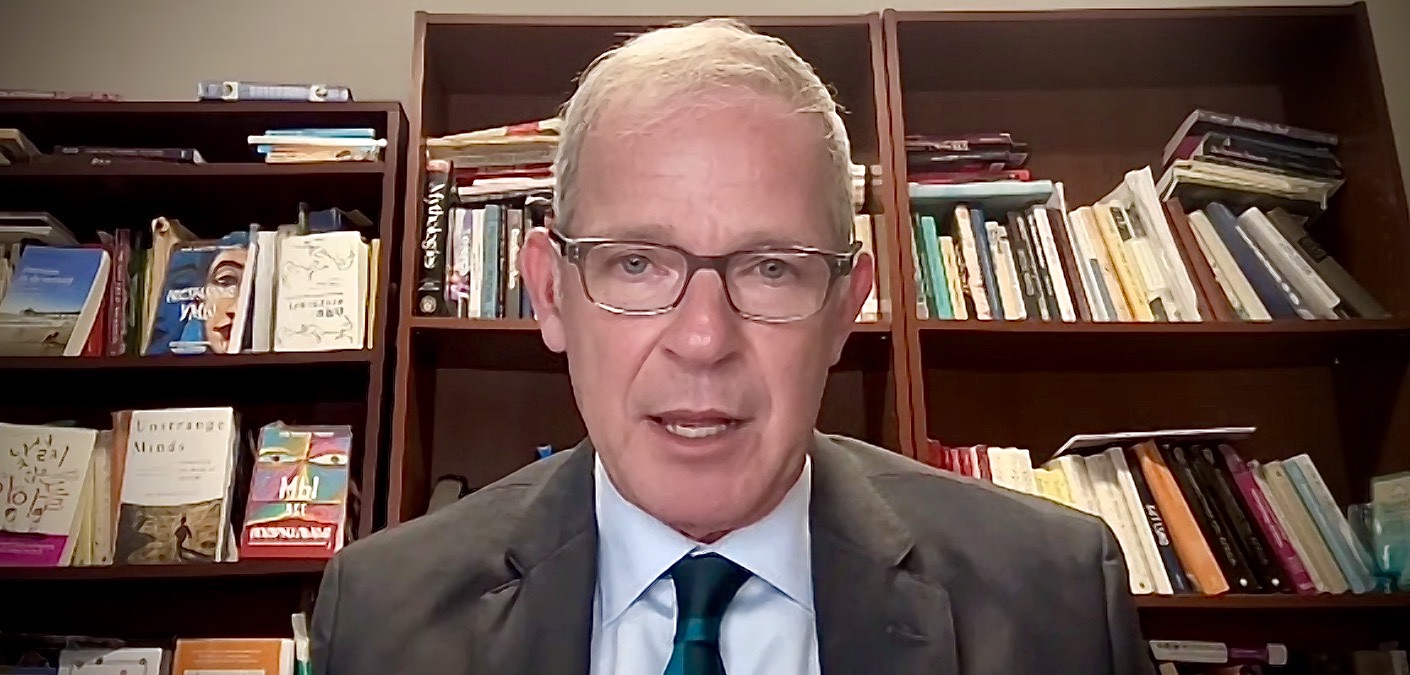“It still gives me chills to think about what a moment that was. It was … taking ownership of this term, rather than it being used to demean or marginalize her, that gave people a framework to understand her. And so she shifted from being somebody that was enigmatic or strange to somebody who was a person with autism who wasn’t ashamed of having autism,” he said on April 4 in an online lecture.
Grinker, an award-winning professor of anthropology and international affairs at George Washington University and an expert on autism and mental illness, was the main speaker at the 2021/2022 Fordham Distinguished Lecture on Disability. His book Unstrange Minds: Remapping the World of Autism (Basic Books, 2008), inspired by Isabel, won the 2008 National Alliance on Mental Illness KEN award.
In his speech, he shared the most critical findings from his newest book, Nobody’s Normal: How Culture Created the Stigma of Mental Illness (W.W. Norton, 2021). He argues that the main cause of stigmatization against those with mental illnesses and disabilities is something that we don’t often consider—the social, cultural, and historical contexts in which we live.
‘The Ideal Person’: How American Society Became Divided
Over the past two decades, disabilities have been increasingly embraced as part of being human, rather than something shameful and frightening, said Grinker. He said he witnessed this transformation in Isabel, who is now 30, as well as his students. On the first day of class in front of nearly 300 peers, a student announced that he had Tourette syndrome, Grinker recalled, because he wanted his peers to understand the reason behind his unusual behavior.
Grinker said that society is becoming less judgmental. Increasing education and public awareness have contributed to this, he said, but what primarily shapes our stigmas against those who are “different” are the social, cultural, and historical contexts in which we live.
Capitalism, for example, created conditions that led to stigmatization. The ideal American possessed two traits that were central to capitalism: independence and autonomy. Those who lacked those traits—or were unable to possess them—were viewed as “abnormal,” he said.
“Our judgments about mental illnesses come from our definitions of what, at different times and places, people consider the ideal society—the ideal person,” Grinker said, adding that we are now moving away from the definition of an ideal person as defined by capitalism.
He also drew attention to a phenomenon that helped to destigmatize mental illness and disabilities: war.
During World War II, an unprecedented number of people suffered from mental illness. In response, U.S. President Harry Truman established the National Institute of Mental Health and ordered the military to create a manual used for the diagnosis of mental disorders.
To Be Normal Is To Be ‘Boring’
Many people aspire to be “normal,” but this mindset is actually a damaging illusion, said Grinker. He recalled a 1951 research study conducted by his father and grandfather, who were both psychiatrists. They studied a group of men who they divided into two groups: those who screened positive for mental illness and those who were “normal.” They found that the latter lacked ambition and creativity. As Grinker put it, they were “boring.”
“What my grandfather and my father were suggesting was that normality was crippling—that some degree of mental illness, some degree of mental difference might be necessary for humanity to remain vibrant, creative, and diverse,” Grinker said.
Humanity’s stigmas can never be completely eradicated—but that doesn’t mean we can’t resist them, he said.
“We only need to look at the kinds of examples that I gave you earlier, whether it’s my daughter, Isabel, or my students, to give us hope,” Grinker said.
The sixth Fordham Distinguished Lecture on Disability was co-organized by the Disability Studies Program and the Research Consortium on Disability and co-sponsored by the Conference of Arts & Science Deans and the Office of Research. The Q&A following the lecture was co-moderated by Sarah Macy, FCLC ’22, a psychology major and disability studies minor who identifies as an autistic woman, and Micki McGee, Ph.D., associate professor of sociology at Fordham and the parent of a neurologically divergent young adult.
Watch a full recording of the lecture below:

